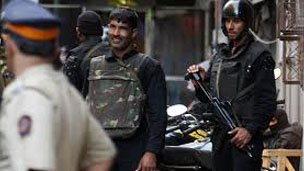Underscoring the vulnerabilities in the existing national security paradigm, Indian defence analysts strongly advocated the need of formulating a well-defined strategic policy framework
Underscoring the vulnerabilities in the existing national security paradigm, Indian defence analysts strongly advocated the need of formulating a well-defined strategic policy framework while addressing an Aspen Institute India (AII) session in New Delhi on Monday.
At present, India faces a multitude of traditional as well as non-traditional security challenges that are exacerbated due to the perceived dearth of strong institutionalised mechanisms for streamlining national security needs. Further complicating the problem is the emergence of multiple international sources of threats, which are often intertwined and interdependent in today’s globalised world. A common view emerging from the deliberations was that the country could find it difficult to streamline the security strategy and address the systemic lacunae in the absence of a clear and comprehensive policy.
Encapsulating the trends observed in India’s military history, former Commander–in–Chief of Indian Navy’s Eastern Naval Command, Admiral Premvir Das, said, “A strong policy doctrine requires consistent reassessments and transformations based on the prevailing trends. Our own policies have witnessed course-corrections, revisions and re-examinations through the decades. I feel that the time has now come to articulate a national security policy in the global domain. However, this re-examination of policy can be carried out only through strong institutions. Security is a complex business, and cannot be conducted in an un-institutional manner.”
Over the last two decades, the emergence of nuclear-powered states in the region has also made it imperative to avoid conflicts. The need of the hour is to enable mechanisms for India to protect its core interests while maintaining international peace. Rolling out an effective security doctrine can go a long way in assuaging public concerns as well as acting as a deterrent for adversaries, analysts say.
Echoing similar views, former chief of the Research and Analysis Wing (RAW) K.C. Verma asserted that a doctrine of this nature needed to have political unity. “India needs a national security doctrine. This doctrine on national security must be a declaratory statement of intent that should be put out in the public domain. It also needs to be coherent, consistent and be borne out of the consensus of the political parties. We cannot have a doctrine that undergoes a change every five years,” argued Verma.
Over the past decade, the definition of ‘security’ has expanded to incorporate socio-economic issues. In an increasingly gloomy economic scenario, India may find itself struggling to acquire defence and communications hardware, thereby threatening national security. Identifying economic growth as a key driver for national security, author and former diplomat, G Parthasarathy, opined, “In 60 years, we have not been able to become self-reliant in defence equipment manufacturing, largely because we do not have an industrial base. By 2022, Indian import of communication equipment may surpass the import of oil, according to an estimate. Security means keeping the internal and external climate of a country in a way that keeps all the citizens safe. To enhance national security, economic growth is vitally important with strong industrialisation. ”
Besides scaling up defence infrastructure, sensitive issues such as water and energy access, human rights, social unrest due to underdevelopment and climate change also need to be re-examined through the prism of national defence and security capability. The emergence of cyber-space as the new domain of warfare has further expanded the defence discourse. To counter these challenges, there is a tangible need to bolster human resources and security infrastructure, upgrade India’s technological capacity, and identify the core strengthens and weaknesses in the existing strategic defence framework.





